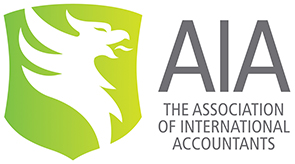Use Gift Aid to save tax
Newsletter issue - May 2018.
HMRC have recently highlighted that charities are collectively missing out on some £600m extra funding because a third of donations made do not add Gift Aid when they could have done so.
Broadly, Gift Aid allows charities and community amateur sports clubs (CASC) to claim an extra 25p for every £1 donated. To add Gift Aid to a donation, the donor must have paid income or capital gains tax that year worth at least the value of the Gift Aid being added, and must give the charity permission to claim it. Gift Aid costs no extra to add on to the donation.
For example, a basic rate taxpayer makes a gift of £100 to a charity under the Gift Aid scheme. The donation is treated as being made net of tax. The 'grossed up' value of the donation is £125 (£100 x 100/80), which means that the charity can claim back tax of £25 from the government. The charity therefore receives £125, but it has only cost the donor £100.
Taking this a step further, Gift Aid can be used to help reduce liability to higher, and even additional, rate income tax.
For example, a higher rate taxpayer makes a gift of £100 to a charity under the Gift Aid scheme. The charity receives £125, as above, but this taxpayer can also claim 20% (the difference between the higher rate of tax at 40% and the basic rate of tax at 20%) as a tax deduction on the total value to the charity of the donation. This means that the taxpayer can claim a further £25 higher rate relief (being 20% of his gross donation of £125) via his self-assessment return.
In arriving at adjusted net income for the purposes of calculating liability to income tax, a deduction is made for the grossed-up amounts of any Gift Aid donations paid. This is important because some reliefs and allowances are given, or withdrawn, by reference to the person's adjusted net income. Such adjustments can have a significant impact on a donor's income tax position. For example, where an individual's total income is slightly above the abatement threshold for withdrawal of the personal income tax allowance (£123,700 in 2018/19), Gift Aid donations may help increase the amount of personal allowance available, and so save tax at 40% (for non-savings income), by making a Gift Aid donation. Gift Aid donations may also help in reducing liability to the high income child benefit charge where income levels are around £50,000 to £60,000.
It is possible to elect for a donation to be treated as paid in the previous tax year. Therefore, it is worth checking at the end of each tax year, whether it would be beneficial to allocate back any such payments. In particular, this may help to reduce a liability to higher rate tax in a previous tax year.
